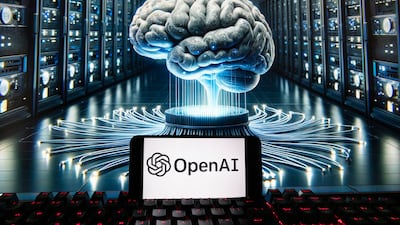A group of current and former OpenAI employees on Tuesday called on the company to give greater protection for whistle-blowers who point out artificial intelligence safety risks.
The letter was signed by 11 OpenAI employees – some of them anonymous – and two former Google DeepMind employees.
It was endorsed by Geoffrey Hinton, known as “the godfather of AI”, and scientists Yoshua Bengio and Stuart Russell.
“These risks range from the further entrenchment of existing inequalities, to manipulation and misinformation, to the loss of control of autonomous AI systems potentially resulting in human extinction,” the employees wrote in an open letter.
The employees said companies focused on AI hold significant information on the limits and risk levels of their systems, but that they are not obliged to share it with the public.
“We do not think they can all be relied upon to share it voluntarily,” the letter said.
“So long as there is no effective government oversight of these corporations, current and former employees are among the few people who can hold them accountable to the public.”
Among other requests, the employees called on advanced AI companies to remove or not enforce “disparagement” agreements that punish employees who criticise them.
They also called on companies not to retaliate against current and former employees who “publicly share risk-related confidential information after other processes have failed”.
The open letter comes as fears grow over the risks that AI could pose.
Industry leaders and researchers have warned about the potential harms of the AI, with one group going as far as to say the technology poses “profound risks to society and humanity”.
OpenAI did not immediately respond to The National's request for comment.

